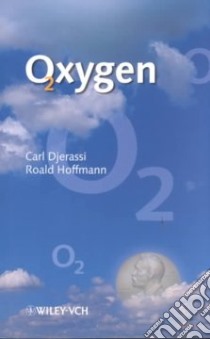Oxygen - 9783527304134
Un libro in lingua di Carl Djerassi Roald Hoffmann edito da John Wiley & Sons Inc, 2001
- € 22.20
- Il prezzo è variabile in funzione del cambio della valuta d’origine
What is discovery? Why is it important to be first? These questions trouble the characters in Oxygen. The action alternates between 1777 and 2001, the Centenary of the Nobel Prize, when the Nobel Foundation decides to inaugurate a "retro-Nobel" Award for discoveries that preceded the establishment of the Prize in 1901. The Foundation thinks this will be easy. In the good old days, wasn't science done for science's sake? Wasn't discovery simple, pure, and unalloyed by controversy, priority claims, and hype?
The Nobel Committee decides to reward the discovery of Oxygen, since that launched the Chemical Revolution. Lavoisier is a natural choice. But what about Scheele? What about Priestley? Didn't they first discover oxygen? The play brings the candidates and their wives to 1777 Stockholm at the invitation of King Gustav III. Through the scientists' wives, in a sauna and elsewhere, we learn of their lives and those of their husbands. Meanwhile in 2001, the Nobel Committee argues about the conflicting claims of the three men.
The ethical issues around priority and discovery at the heart of of this play are as timely today as they were in 1777. As are the ironies of revolutions: Lavoisier, the chemical revolutionary, is a political conservative, who loses his life in the Jacobin terror. Priestley, the political radical, is a chemical conservative. And Scheele just wants to run his pharmacy. He, the first man on earth to make oxygen, got least credit for it. Will that situation be repaired 230 years after his discovery?
Informazioni bibliografiche
- Titolo del Libro in lingua: Oxygen
- Sottotitolo: A Play in 2 Acts
- Lingua: English
- Autori : Carl Djerassi Roald Hoffmann
- Editore: John Wiley & Sons Inc
- Collana: John Wiley & Sons Inc (Paperback)
- Data di Pubblicazione: 01 Febbraio '01
- Genere: SCIENCE
- Argomenti : Chemists Drama Nobel Prizes Drama Chemistry History 18th century Drama
- Pagine: 119
- Dimensioni mm: 209 x 133 x 12
- ISBN-10: 3527304134
- EAN-13: 9783527304134


